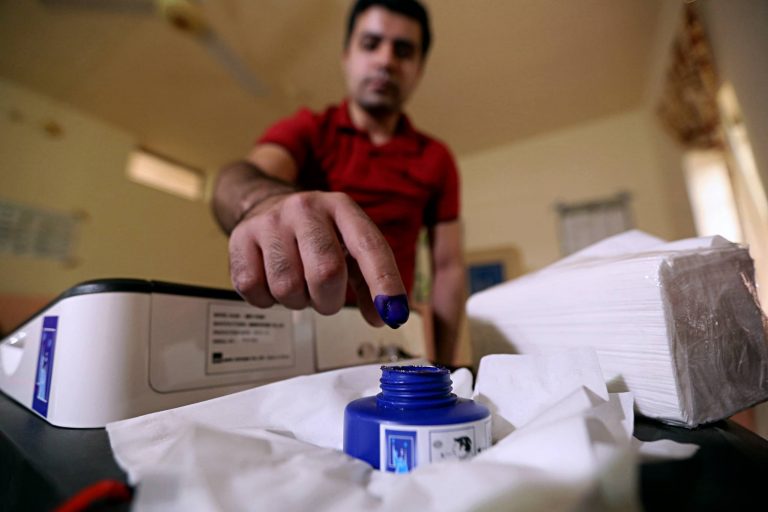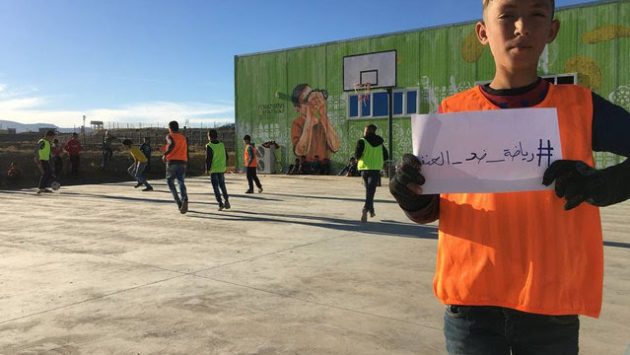Shams Network Report on Monitoring the Iraqi Parliamentarian Elections 2021: The Legal Framework for Elections
- Background on Observing the Iraqi Parliamentary Elections 2021
Since 2005, Iraq has gone through several electoral experiences and the Shams network has had an active role in monitoring the elections as one of the most prominent Iraqi civil society institutions and its contribution to supporting the transparency and integrity of the elections was evident through the monitoring programs and reports it issued, in addition to its proposals and opinions in the electoral process procedures.
For the Iraqi parliamentary elections to the year 2021, the Shams network has prepared a work program to monitor the full cycle of the Iraqi elections, which was implemented by the self-efforts of the network and its member organizations, with partial support from the French and Dutch embassy, the Stiftung-Adenauer-Konrad Foundation and the Network for Elections in the Arab World (ENAR).
Through its experts and advisors, Shams Network monitored the legal framework for the Iraqi parliamentary elections, in addition to meetings with parties, political entities, the Independent High Electoral Commission, members of the Iraqi parliament and civil society institutions, where it issued a report on the process.
Conclusions and Recommendations
Notes on the electoral law, the law of the commission, and the electoral process in general:
1. Electoral stability is important in a country transitioning to democracy such as Iraq, which required maintaining proportional representation appropriate to the current circumstances
2. The law was not drafted tightly, and it contains many contradictions
3. There is redundant art.s in the law, and art.s related to the previous electoral system, and it is not consistent with the current one.
4. There are problems that the commission will face in designing the ballot paper and the drawing process among the names of the candidates on the paper
5. The law did not respond to the demands of the popular movement correctly, and the electoral process will be accompanied by problems that may lead to the abolition of the law and finding an alternative in the elections that follow.
6. The law enshrines individualism at the expense of political entities. The ceiling of electoral spending in the absence of a commission specialized in complaints and appeals.
9. Designating a member of the Board of Commissioners as the head of the electoral administration leads to a conflict of interest
10. There is no suitable technological infrastructure to implement the biometric registration process and to adopt inspection and auditing devices on polling day and in the counting and sorting process.
11. Several experienced members of the UNHCR staff were dismissed, which led to an impact on the performance level of UNHCR formations
12. Failure to adhere to the electoral calendar, and the expectation that this will continue until after the elections.
13. The end of the elections may lead to the formation of a parliament that includes a large number of tribal sheiks and dignitaries because they can have more votes.
14. Forgery has become something that is not rejected and does not stir consciences, because of the repetition of the matter in all elections and the legal deterrent is not sufficient to prevent fraud.
15. The legislator directed the establishment of an election commission independent of the three authorities, but the new law of the commission somehow linked it with the judiciary, which must be remedied in the future, since the judiciary has become executives through the commission, which is not stipulated in the constitution.
16. The law specified the mandate of the commission for four years, in conjunction with the age of the parliament and the government, which makes the commission under the influence of the council of clubs. The results were contrary to the desire of the large blocs
17. General directors are not required to have experience in managing elections, while directors of governorate offices are required to have ten years of experience.
18. The experience of the United Nations mission to select the Board of Commissioners and the primary officials in the Commission is not benefited from, but rather reliance on a kind of quota among the dominant blocs
19. The independence of the commission is a relative issue. The selection of judges to fill the membership of the Board of Commissioners does not mean that the commission is independent because independence includes (independence in managing the institution financially and administratively, making decisions and appointing workers) provided that the employees do not have political tendencies that affect the electoral process.
20. Not publishing the procedures for the electoral process before an appropriate time and limiting the decisions and procedures of the moment
21. Reluctance to participate as voters and as candidates, especially women who are subjected to great political abuse through the media and social media
22. The multiplicity of sources of voter cards and the inability to participate exclusively with the biometric card, since whoever owns the temporary electoral card is allowed to vote, the inability to vote is not repeated and the matching
23. When enacting the law, the electoral process partners are not involved, but are controlled by the influential forces represented in the House of Representatives
24. How can a representative who loses his membership be compensated? In the previous electoral system, he was compensated by whoever came next on his electoral list, but now he is compensated by the next number of votes, and he may come from another political direction. While Art. 46 of the Elections Law stipulates that he should be from his list! There is a contradiction that needs a constitutional fatwa. This may be at the expense of party candidates at the expense of individual candidates.
25. How is the association of political blocs with armed wings monitored, and what is the role of the commission? How to secure electoral security and the security of candidates, and to prevent blackmail, intimidations and threats.
26. The political parties law does not specify a text about the monitoring of the electoral expenditure budget. Is it possible without an effective tax and banking system to achieve this? Do the parties submit annual financial and narrative reports according to the law?



